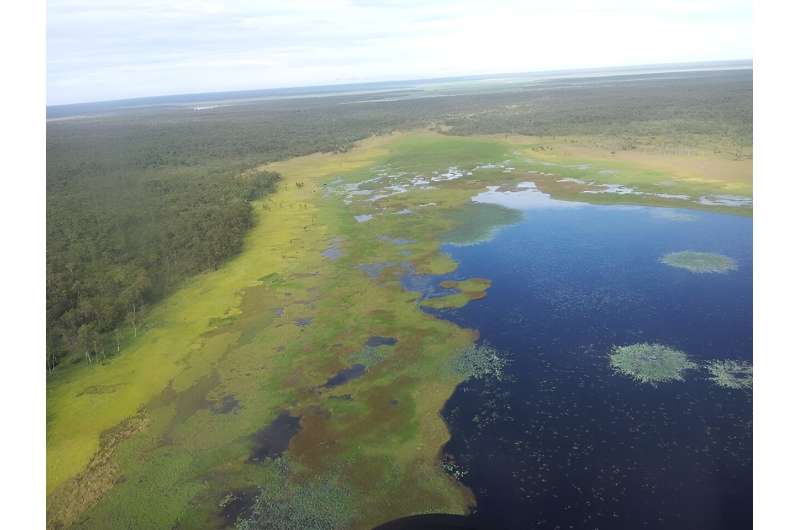This article has been reviewed according to Science X's editorial process and policies. Editors have highlighted the following attributes while ensuring the content's credibility:
fact-checked
peer-reviewed publication
trusted source
proofread
World Heritage Sites face unprecedented challenges from climate change, study suggests

World Heritage Sites across the world are facing unprecedented challenges from climate change. Australia has 20 sites on the UNESCO World Heritage List, from convict sites like the Port Arthur Historic site in Tasmania to natural and cultural heritage sites like Kakadu National Park.
In a paper published in Nature Sustainability, "Holistic climate change adaption for World Heritage," researchers looked at the impacts of climate change on these sites and how we can rethink their management.
Climate change impact on World Heritage Sites
Changes such as increasing temperatures, precipitation change, more frequent extreme events and rises in sea level can directly threaten the attributes of World Heritage Sites for their "Outstanding Universal Value."
In a recent review of threats to World Heritage Sites, the International Union for Conservation of Nature (IUCN) World Heritage Outlook identified more natural World Heritage Sites have deteriorated than improved globally since 2017. Climate change is cited as their most significant threat.
Climate change and severe weather events have risen in size and severity across World Heritage Sites, and are predicted to continue to increase for a large proportion of the sites. This will lead to damage of the built fabric, for example, with deterioration due to heat and humidity, water ingress from storms and wind damage.
The paper's lead-author and principal research scientist Dr. Brenda Lin said climate change is altering the very attributes of the World Heritage Sites that have warranted their classification as World Heritage in the first place.
"At the same time, the values that society and communities embrace are changing," Lin said.
"Because of this we need to think about how we consider the 'values' of World Heritage through change—and we know that both physically and socially, the expectations are changing."
Changing the management of World Heritage Sites
Lin said the paper suggests three approaches to management that could assist the conservation of these sites.
"The first is to take an approach that considers the desires and values of many different stakeholders in the way we manage World Heritage through climate change," Lin said.
"Secondly, we need to think more about how natural values, like ecosystems, landscapes and animals, and cultural values, such as historical infrastructure and Indigenous art, are connected. We currently think about how cultural values can change through time, but not so much with natural values—and often the same attribute can contribute to both.
"Finally, we need to recognize there needs to be Indigenous leadership and processes that are central to the management and adaptation decisions that are made on Country," she said.
Natural and cultural heritage
Climate change will impact the ongoing ability to maintain the values of Australia's mixed heritage sites, which integrate both natural and cultural heritage in their management processes.
The paper's co-author and our senior research scientist Dr. Jess Melbourne-Thomas said the Tasmanian Wilderness World Heritage Area is an example of a globally significant place where there might be opportunities to bring Indigenous knowledge into climate change adaptation.
"One of the big threats for this area is bushfire and so there's a lot of great work that's being done in terms of thinking about the kinds of active interventions we might make—but these depend on adequate resourcing," Melbourne-Thomas said.
"Long-term adaptation plans for World Heritage—that incorporate our understanding of when and how in the future climate change threats might increase and what would need to be done in a staged fashion to manage World Heritage values—are really important for effective management."
More information: Brenda B. Lin et al, Holistic climate change adaptation for World Heritage, Nature Sustainability (2023). DOI: 10.1038/s41893-023-01153-1
Journal information: Nature Sustainability
Provided by CSIRO





















